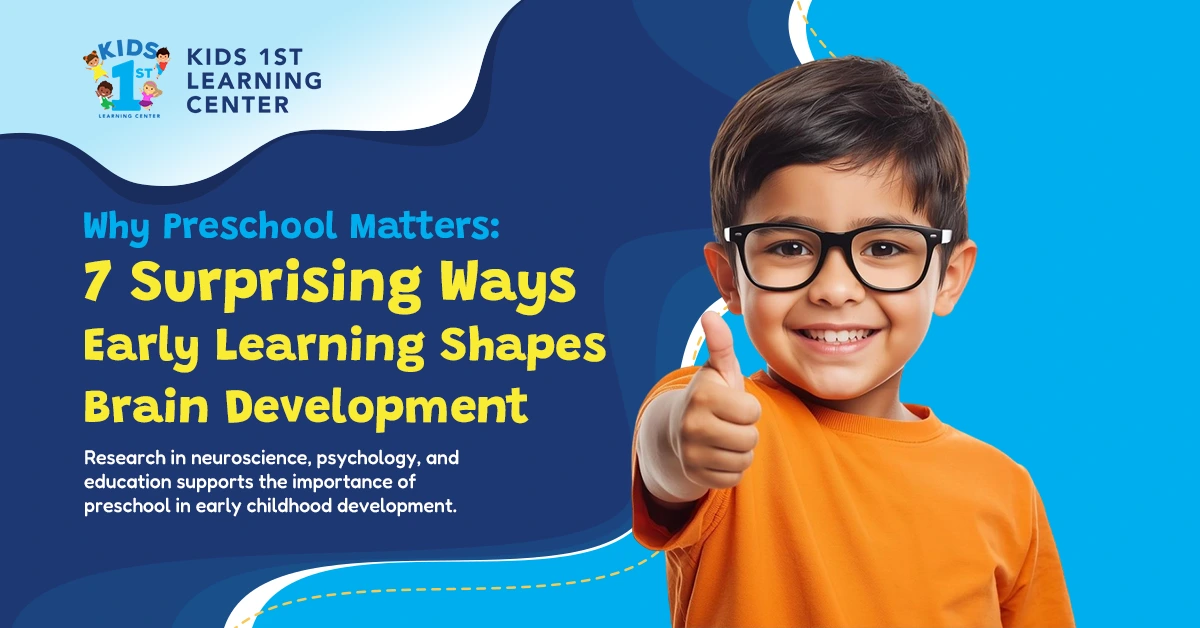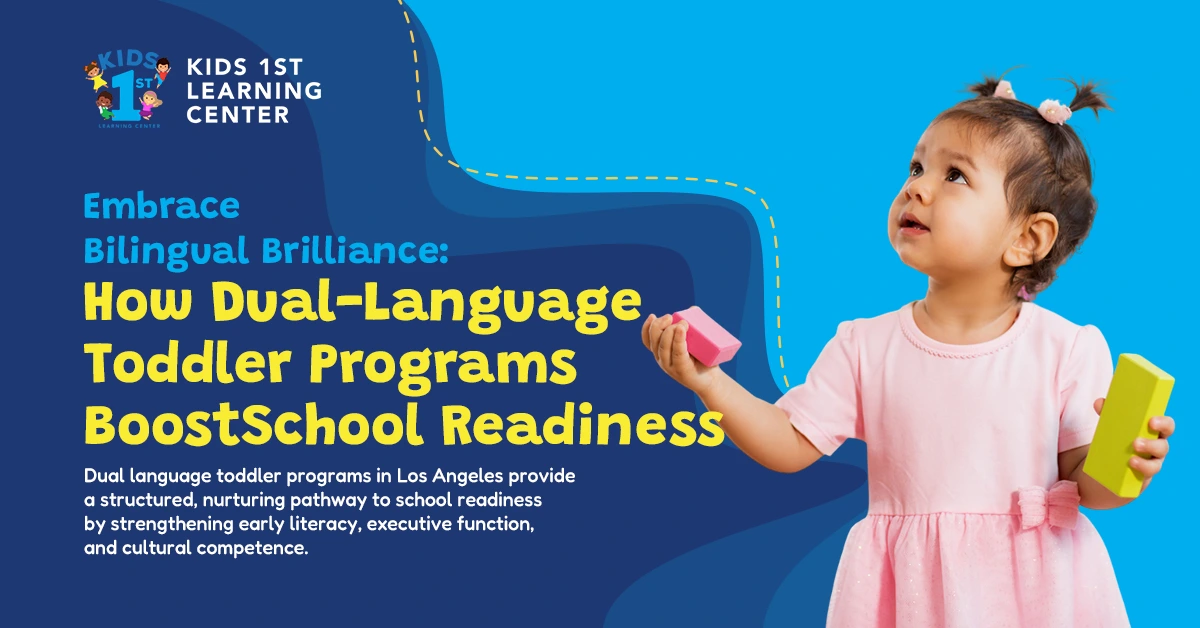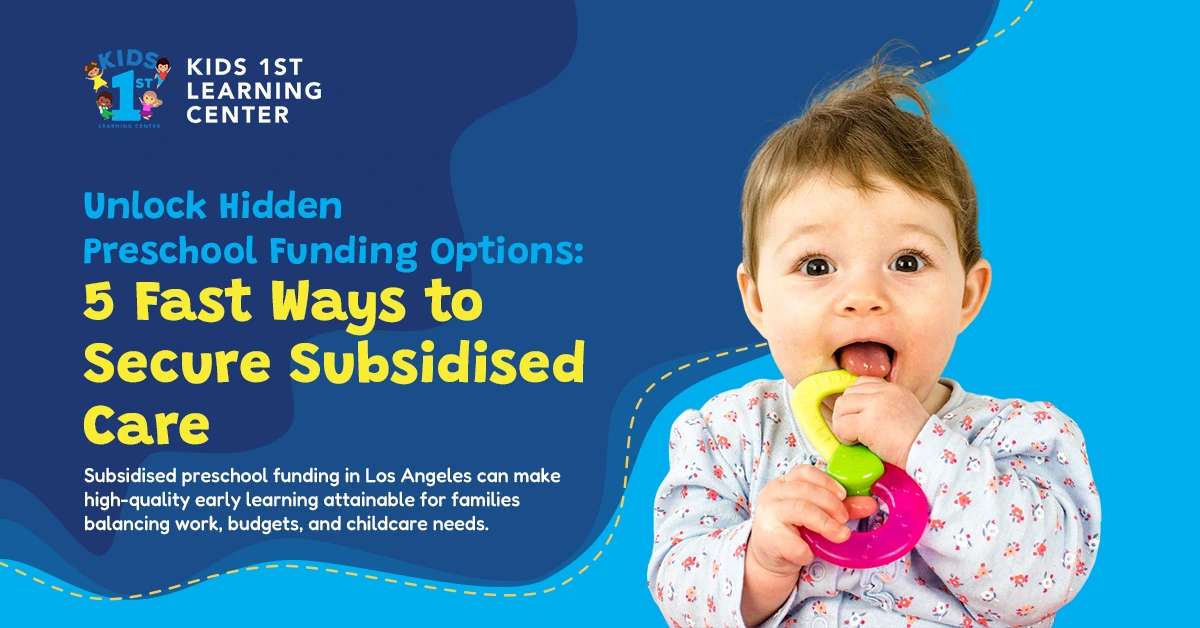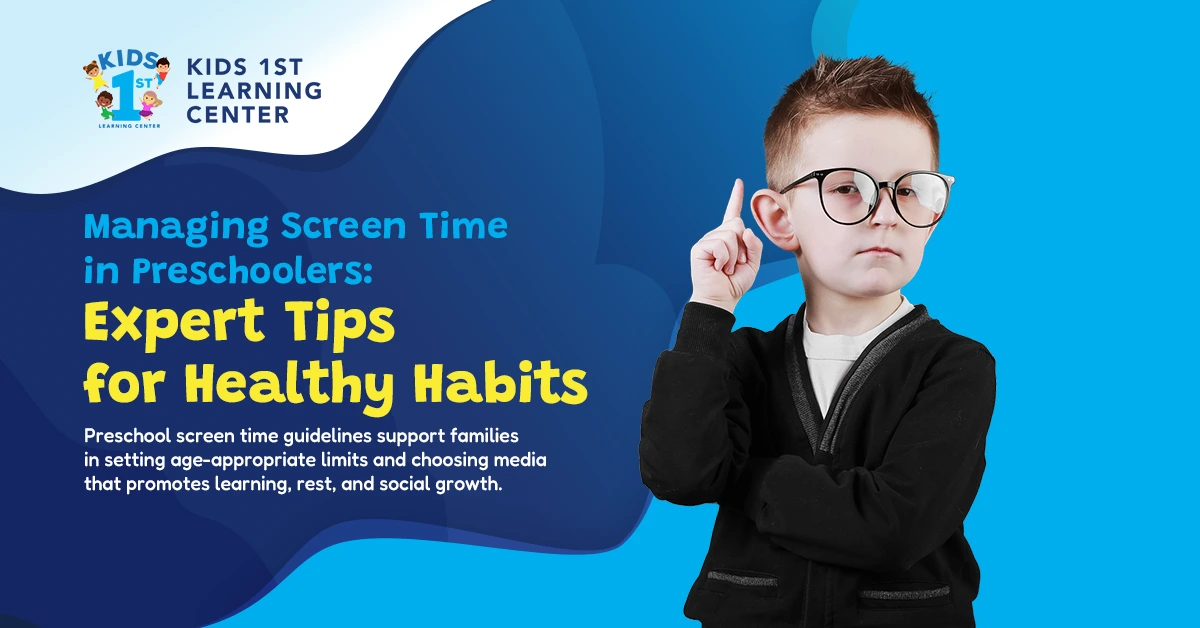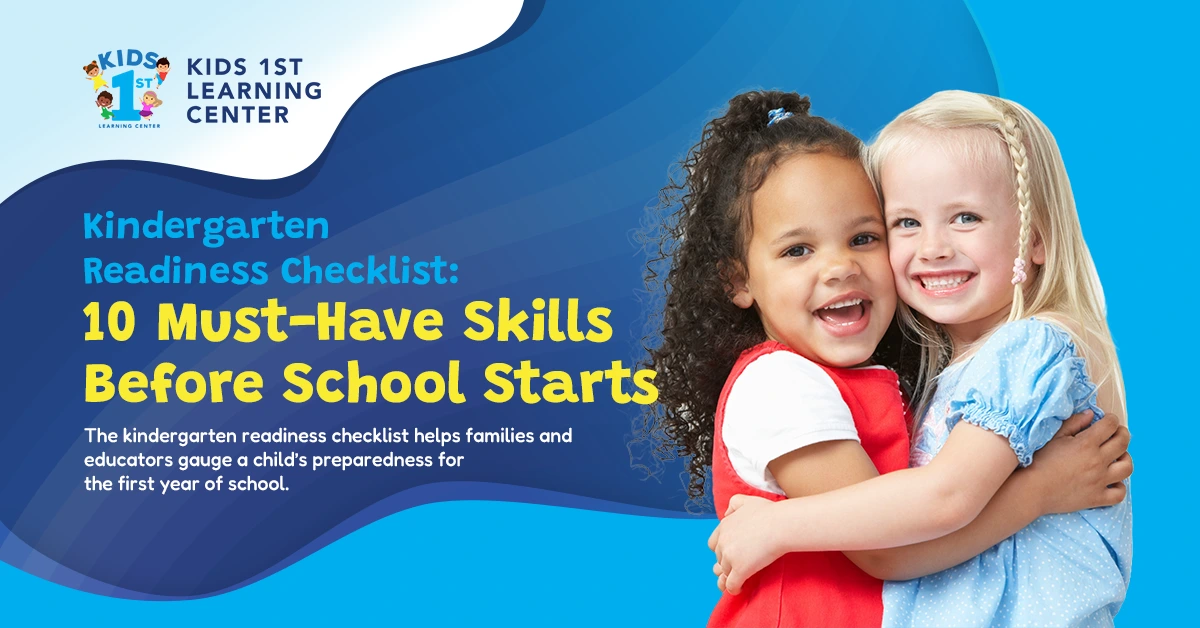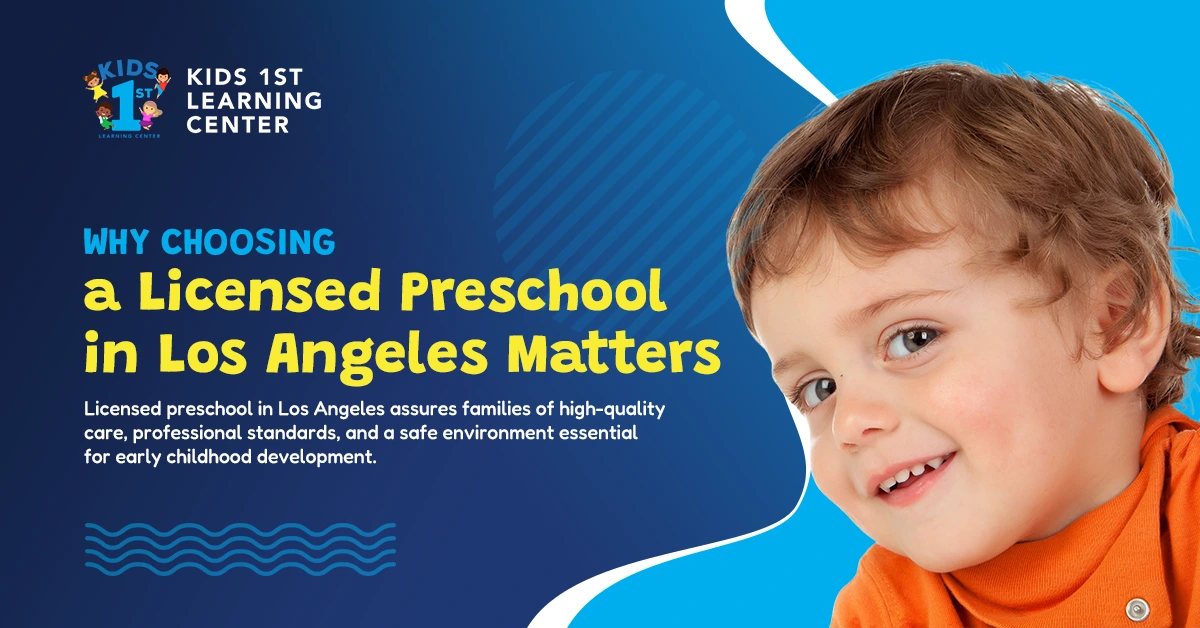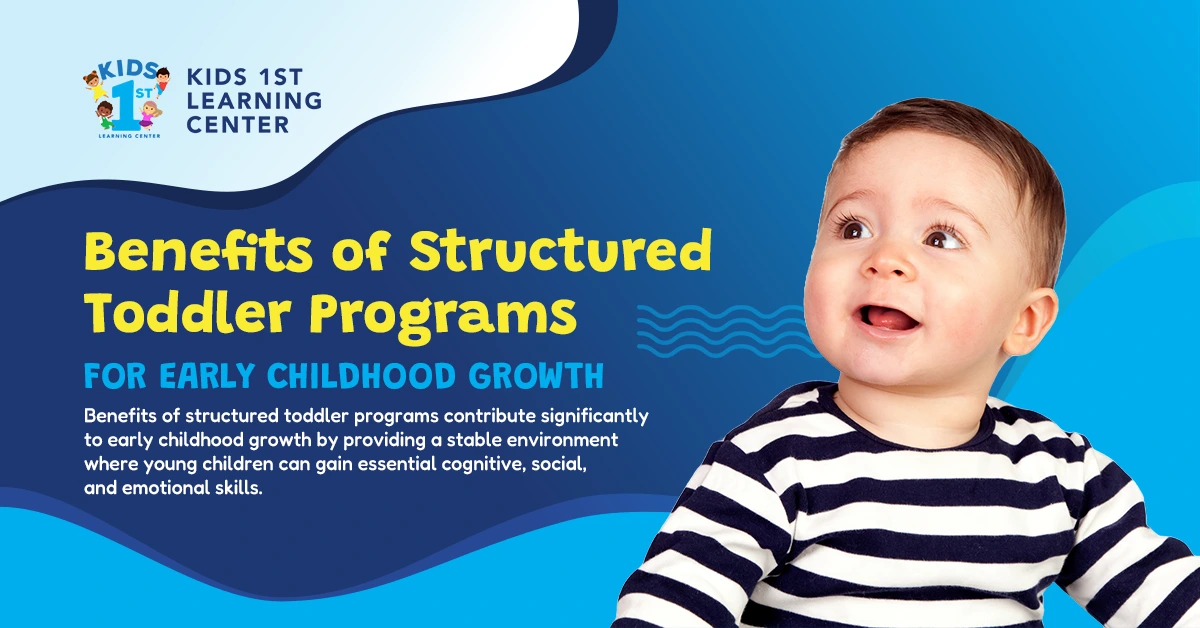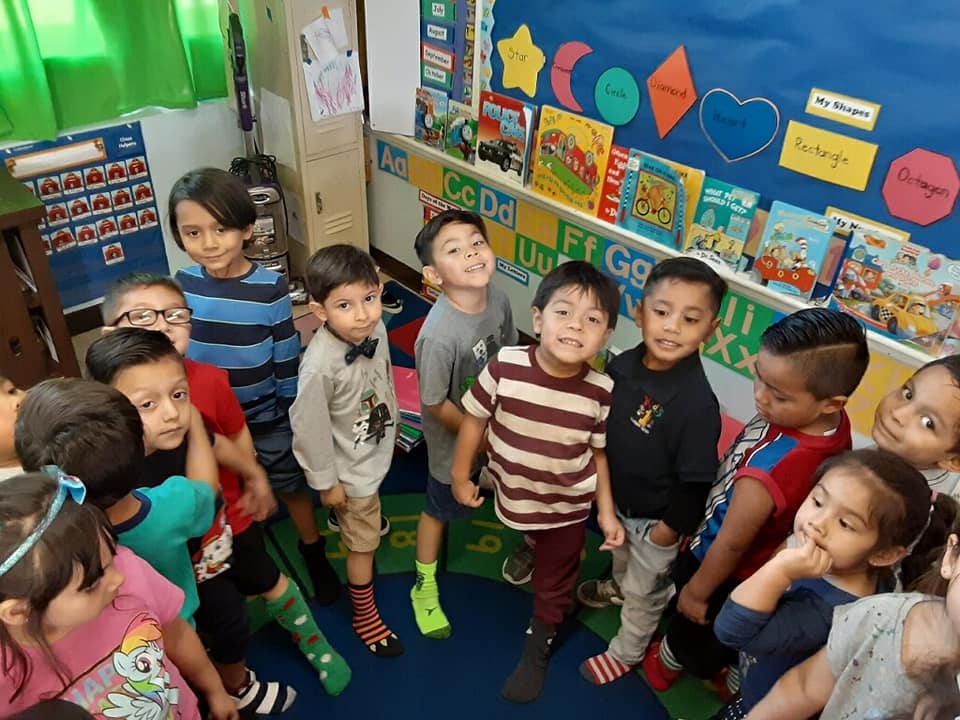
Unlocking your child’s potential begins with choosing the right early childhood curriculum program. Discover how to navigate the educational landscape in LA County, explore various curriculum types, and make informed enrollment decisions. Maximize your child’s learning experience and stay ahead of the evolving trends in early childhood education in Southern CA.
Your child’s future starts now – empower yourself with the knowledge to make the best choices for their educational journey.
Key Takeaways for Navigating Early Childhood Curriculum Options
- Early childhood education plays a crucial role in a child’s development, shaping their brain development, social skills, and academic success.
- When choosing an early childhood curriculum program, prioritize safety, qualified staff, stimulating environments, and aligning factors with your child’s needs and interests.
- During enrollment and school visits, gather required documents, ask questions about curriculum and teacher qualifications, understand tuition fees, and maximize your child’s education experience through support at home.
- Trends in early childhood education emphasize social-emotional learning, family involvement, community engagement, and creating a supportive learning environment for long-term success.
Understanding Early Childhood Education in LA County
When it comes to understanding early childhood education in LA County, it’s crucial to recognize the significance of early learning in a child’s development.
You have various options for early childhood curriculum programs, each with its own unique approach and benefits. Consider factors like curriculum structure, teaching methods, and school environment when choosing a program that best suits your child’s needs and learning style.
The Importance of Early Learning
You’ll discover that early learning plays a crucial role in setting the foundation for your child’s future success. Early childhood education in LA County focuses on providing children with a solid base for lifelong learning and development. Here are some key points to consider:
- Brain Development: Early learning experiences shape brain development, impacting a child’s cognitive abilities and emotional well-being.
- Social Skills: Interactions in early education settings help children build social skills, empathy, and the ability to work in groups.
- School Readiness: Exposure to early learning programs prepares children for academic success by instilling a love for learning and introducing basic concepts.
Investing in your child’s early education is a vital step towards ensuring their bright future.
Options for Early Childhood Curriculum Programs
As you explore the various options for early childhood curriculum programs in LA County, you’ll encounter a range of enriching educational opportunities for your child. From play-based programs that foster creativity and social skills to structured curriculums focusing on literacy and numeracy, the choices can seem overwhelming.
Research suggests that high-quality early childhood education can have a lasting positive impact on a child’s development. Look for programs that prioritize safety, qualified staff, and a stimulating environment. Consider visiting potential facilities to observe interactions, cleanliness, and overall atmosphere.
Factors to Consider When Choosing a Program
To make an informed decision about early childhood curriculum programs in LA County, you should carefully evaluate factors that align with your child’s needs and interests. When choosing a program, consider the following:
- Accreditation: Look for programs accredited by reputable organizations like the National Association for the Education of Young Children (NAEYC) to ensure high-quality standards.
- Teacher Qualifications: Check the teachers’ qualifications and experience to ensure they have the necessary skills to support your child’s development.
- Curriculum Approach: Understand the curriculum approach of the program (e.g., Montessori, Reggio Emilia) to see if it matches your child’s learning style and interests.
A Closer Look at Curriculum Types
As you explore early childhood curriculum options, it’s crucial to understand the diverse approaches available.
Montessori education focuses on child-centered learning, fostering independence and self-directed exploration.
Reggio Emilia emphasizes expressive languages, encouraging communication through various forms of art and creativity.
Waldorf education nurtures creativity and imagination, while STEM-based curriculums prepare children for a future driven by innovation and technology.
Montessori: A Child-Centered Approach
You’ll discover that Montessori education emphasizes independent learning and hands-on experiences for children. This child-centered approach fosters a love for learning and encourages self-motivation.
Here are some key aspects of Montessori education:
- Child-Led Learning: Children have the freedom to choose activities based on their interests and pace.
- Mixed Age Groups: Classes typically have a mix of ages, allowing younger children to learn from older peers and vice versa.
- Emphasis on Practical Life Skills: Activities focus on real-life tasks like pouring, cleaning, and gardening, promoting independence and self-care.
Montessori programs provide a nurturing environment where children can develop holistically, building a strong foundation for future academic success.
Reggio Emilia: Emphasizing Expressive Languages
When exploring Reggio Emilia curriculum, you can observe how expressive languages are highlighted to encourage creativity and communication in young learners. This approach values the arts, music, movement, and drama as essential forms of communication for children.
By immersing children in various expressive languages, such as painting, sculpting, and storytelling, Reggio Emilia curriculum fosters a deep understanding of concepts and emotions. Through these mediums, children can explore their thoughts, feelings, and ideas, enhancing their cognitive and social development.
This emphasis on expressive languages not only cultivates critical thinking and problem-solving skills but also nurtures a sense of community and collaboration among young learners. By integrating these creative outlets into the curriculum, Reggio Emilia empowers children to express themselves authentically and develop a lifelong love for learning.
Waldorf: Fostering Creativity and Imagination
Explore how Waldorf curriculum integrates creative elements to nurture your child’s imagination and foster a love for learning. In Waldorf education, creativity is at the core of the curriculum, aiming to provide a holistic approach that values artistic expression and imagination alongside academic development. Here are three key aspects of Waldorf education to consider:
- Emphasis on Play: Waldorf programs often prioritize unstructured playtime, allowing children to explore and create in a free and imaginative way.
- Arts Integration: Through activities like painting, music, and storytelling, Waldorf education encourages artistic expression as a means of learning and understanding.
- Nature Connection: Waldorf schools often incorporate nature-based activities to instill a deep appreciation for the environment and promote outdoor learning experiences.
Transitioning into the subsequent section about ‘STEM-based curriculums: building future innovators,’ it’s important to consider the balance between creativity and analytical thinking in your child’s educational journey.
STEM-Based Curriculums: Building Future Innovators
As you frequently encounter various early childhood curriculum programs, you’ll notice the emphasis on STEM-based curriculums for building future innovators. STEM stands for Science, Technology, Engineering, and Mathematics, and these programs are designed to foster skills like problem-solving, critical thinking, and creativity from a young age.
Research shows that early exposure to STEM education can significantly impact a child’s future career opportunities, as many industries increasingly require these skills. By integrating STEM concepts into play-based learning, children develop a strong foundation in these disciplines while having fun and engaging with their environment.
Choosing a curriculum that includes STEM components can help your child become a confident, resourceful, and innovative thinker. Now, let’s explore how to navigate the enrollment process and find the best fit for your child’s educational journey.
Navigating the Enrollment Process
When enrolling your child in an early childhood curriculum program, there are key steps you should take to ensure a smooth process.
Asking important questions during school visits can give you valuable insights into the program’s suitability for your child.
Understanding tuition costs and exploring financial aid options can also help make the enrollment process more manageable.
Key Steps to Take When Applying
To ensure a smooth enrollment process, you should gather all required documents beforehand. This will help expedite the application process and prevent any delays. Here are some key steps to take when applying:
- Complete the Application Form: Complete all sections of the application accurately and provide all necessary information.
- Schedule a Tour: Visit the early childhood program to get a feel for the environment and meet the staff. This can help you make an informed decision.
- Submit Application Early: Enrollment deadlines can vary, so it’s advisable to submit your application ahead of time to secure a spot for your child.
Important Questions to Ask During School Visits
You should prioritize clarity and understanding when engaging with school representatives during visits to ensure a smooth enrollment process. When visiting potential schools for your child, ask about the curriculum structure, teacher qualifications, and class sizes to gauge the quality of education provided. Inquire about the school’s approach to discipline, communication with parents, and opportunities for parental involvement.
Understanding the daily routine, extracurricular activities, and safety protocols are vital for your child’s well-being. Additionally, discussing the enrollment timeline, required documents, and any admission tests can help you prepare adequately. By asking these important questions during school visits, you can make an informed decision about the best early childhood program for your child, setting a strong foundation for their future academic success.
Understanding Tuition and Financial Aid Options
As you explore early childhood curriculum programs, it’s essential to assess your financial options and understand the tuition and financial aid procedures available. Navigating the enrollment process can seem overwhelming, but with proper knowledge, you can make informed decisions. Here are some key points to consider:
- Research various early childhood programs and their tuition fees.
- Inquire about available scholarships, grants, or financial aid opportunities.
- Understand the application process for financial assistance and deadlines.
Maximizing Your Child’s Early Education Experience
As a parent, you play a crucial role in maximizing your child’s early education experience. By supporting learning at home, you can reinforce the concepts taught in the classroom and help your child excel.
Furthermore, understanding the significance of play in early development and building a strong partnership with your child’s educators are key components in ensuring a well-rounded educational journey for your little one.
Tips for Supporting Learning at Home
To maximize your child’s early education experience, incorporate daily reading into their routine. Reading with your child not only helps with language development but also fosters a love for learning.
Here are three additional tips to support your child’s learning at home:
- Create a Learning Environment: Designate a specific area in your home for educational activities to help your child focus and associate learning with a positive space.
- Encourage Curiosity: Ask open-ended questions to stimulate critical thinking and curiosity in your child.
- Use Educational Apps: Introduce age-appropriate educational apps that can reinforce learning concepts in a fun and interactive way.
The Role of Play in Early Development
Enhance your child’s early education experience by recognizing the crucial role of play in their development. Play isn’t just a way for children to have fun; it’s a fundamental aspect of their learning process.
Research shows that play helps children develop essential skills such as problem-solving, creativity, social interaction, and emotional regulation. When children engage in play, they’re actively exploring the world around them, making sense of their experiences, and building neural connections that support their cognitive development.
Building a Partnership with Your Child’s Educators
Connect with your child’s educators to ensure a collaborative and supportive early education experience. Building a strong partnership with your child’s educators can significantly enhance your child’s learning journey. Here are three key ways to maximize your child’s early education experience:
- Regular Communication: Maintain open lines of communication with your child’s educators to stay informed about your child’s progress and any areas of concern.
- Active Involvement: Participate in school activities, parent-teacher meetings, and volunteer opportunities to actively engage with your child’s educational environment.
- Support at Home: Extend learning beyond the classroom by reinforcing lessons, encouraging curiosity, and creating a conducive learning environment at home.
The Future of Early Childhood Education in Southern CA
As a parent in Southern CA, you may be curious about the future of early childhood education in your region. Trends in early learning curriculum, the impact of technology on childhood programs, and the significance of community and family involvement are key topics that shape the landscape of early education.
Understanding these aspects can help you make informed decisions about your child’s educational journey.
Trends in Early Learning Curriculum
You’ll frequently find innovative approaches to early childhood education curriculum in Southern CA, shaping the future of learning for young children.
- Emphasis on Social-Emotional Learning: Programs are integrated activities that promote emotional intelligence and social skills development.
- Incorporation of Nature-Based Education: Outdoor experiences and nature-based activities are gaining popularity for their role in enhancing cognitive development.
- Focus on Diversity and Inclusion: Curricula are being designed to celebrate cultural diversity and foster inclusivity and understanding among children.
These trends reflect a holistic approach to early childhood education, ensuring a well-rounded development for young learners.
As we delve into how technology is shaping early childhood programs, it’s essential to understand how these trends complement the educational landscape for children in Southern California.
How Technology Is Shaping Early Childhood Programs
To stay ahead in understanding the future of early childhood education in Southern CA, you should explore how technology is revolutionizing early childhood programs. Technology is increasingly integrated into early learning environments, enhancing educational experiences. Interactive educational apps, digital storytelling, and virtual learning platforms engage young minds and cater to diverse learning styles. However, it’s essential to ensure that technology is used in moderation, under supervision, and with a focus on educational content. Safety measures, such as parental controls and secure online environments, are crucial to protect children from potential risks. By embracing technology responsibly, early childhood programs can provide innovative learning opportunities that prepare children for a tech-savvy future.
Transitioning into the next section, let’s now delve into the importance of community and family involvement.
The Importance of Community and Family Involvement
Engaging with your community and involving your family in early childhood education programs can significantly enhance your child’s learning experience.
When families and communities actively participate in early childhood education, children benefit in various ways:
- Social Development: Interacting with a diverse group of people helps children develop social skills and empathy.
- Cultural Awareness: Exposure to different cultures through community events broadens children’s perspectives.
- Support System: Engaging with other families and educators creates a strong support system for both you and your child.
Conclusion:
Choosing the right early childhood education is a big step for your child’s future. It’s all about finding a program that fits your child’s needs and setting them up for success from the start. With the right support, your child can learn, grow, and get ready for a bright future. Remember, your involvement is key to making this journey rewarding for your child.
Interested in learning more about how you can give your child a great start? Contact Kids 1st to discover our early childhood programs. We’re here to answer your questions and help guide you through the process. Reach out to Kids 1st today and take the first step towards your child’s future success.

